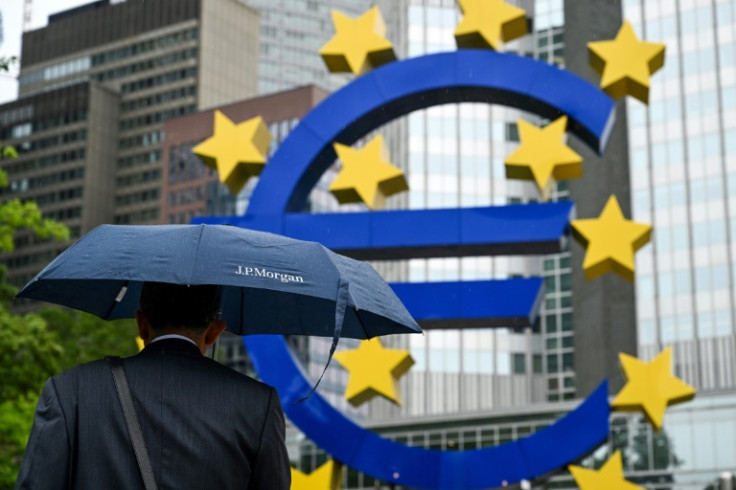Eurozone Inflation Falls To More Than Two-year Low

The annual rate of inflation in the eurozone fell to a more than two-year low in November, the EU's official statistics agency said Thursday.
Consumer price increases in the 20-nation single currency bloc reached 2.4 percent, Eurostat data showed, the lowest since July 2021.
The figure beat a consensus forecast by analysts compiled by financial data firm FactSet which said inflation would slow to 2.7 percent in November, from 2.9 percent in October.
The data will provide comfort to the European Central Bank (ECB), which has paused its unprecedented streak of interest rate hikes, that they are continuing to tame red-hot inflation. But the data will likely spur hopes that the Frankfurt-based body could consider cutting rates soon.
Inflation has steadily dropped since it reached a peak of 10.6 percent in October 2022 following the upheaval in markets wrought by Russia's war on Ukraine.
Inflation is still above the ECB's two-percent target, however.
Core inflation, which strips out volatile energy, food, alcohol and tobacco prices, also slowed to 3.6 percent in November from 4.2 percent in October.
Core inflation is the key signal for the ECB.
The ECB held rates steady at its last meeting in October, but its chief, Christine Lagarde, has warned another energy shock could prompt inflation to jump again.
"There will be a resurgence of probably (a) higher number going forwards and we should be expecting that," Lagarde said on November 10.
The rise in food and drink prices also slowed down, reaching 6.9 percent in November compared with 7.4 percent in October, according to Eurostat.
Energy prices in the eurozone, however, dipped further in November, falling by 11.5 percent on the back of a drop of 11.2 percent the previous month.
Belgium was the only country where consumer prices fell in November, dropping by 0.7 percent, according to Eurostat figures.
There was also a glimmer of hope for Europe's biggest economy as inflation slowed further in Germany, to reach 2.3 percent in November from 3.0 percent in October, the agency's data showed.
© Copyright AFP {{Year}}. All rights reserved.




















